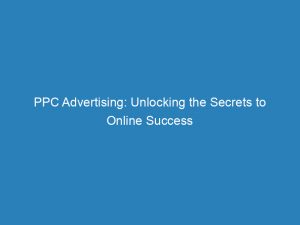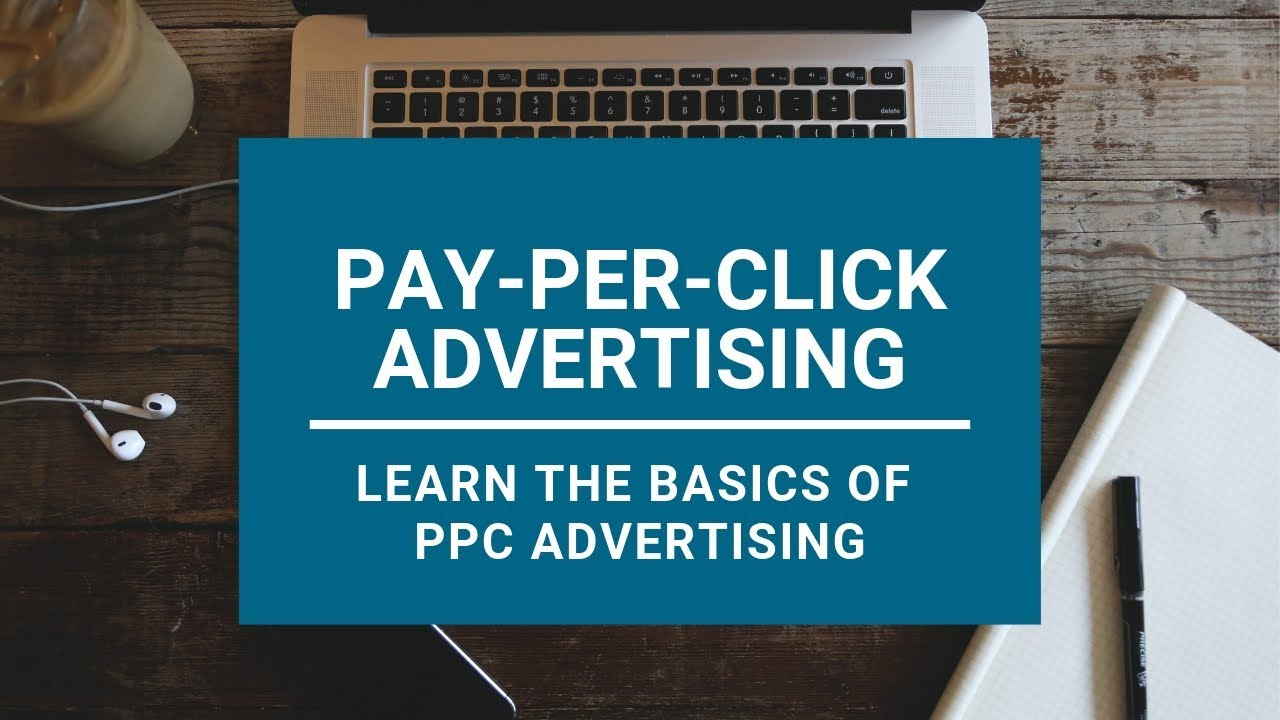In today’s digital age, capturing the attention of potential customers is more crucial than ever. Enter PPCadvertising: a powerful tool that can transform your online presence and drive unrivaled success.
By leveraging this cost-effective strategy, businesses can effectively showcase their websites on search engine result pages and social channels, reaching the right audience at the right time. With full control, extensive testing options, and precise targeting capabilities, PPC advertising empowers marketers to refine their SEO strategies and optimize ROI.
With continuous management and tracking, utilizing cutting-edge PPC management tools can offer a competitive edge, propelling your website traffic and conversions through the roof. Get ready to unlock the true potential of your online presence with PPC advertising.
Table of Contents
- ppc advertising
- Introduction to PPC Advertising
- Benefits of PPC Ads
- How PPC Ads Target Ideal Customers
- The Relationship Between PPC Ads and SEO Strategy
- Key Elements for a Successful PPC Campaign
- Techniques for Improving Ad Performance
- Maximizing ROI in PPC Advertising
- Tools and Metrics for Effective PPC Management
ppcadvertising
PPC advertising, short for pay-per-click advertising, refers to a method in which advertisers pay a fee to display their website on search engine result pages or social channels. It allows advertisers to target specific keywords and display their ads prominently to potential customers.
PPC ads are cost-effective, produce fast results, and provide control over advertising campaigns. They also allow for testing and targeting ideal customers, unaffected by algorithm changes.
Additionally, data collected from PPC ads can be used to improve SEO strategies. Setting parameters and goals, optimizing ad copy and landing pages, monitoring keywords and match types, and utilizing audience targeting options are all crucial elements in successful PPC campaigns.
Continuous management and tracking of metrics is necessary for optimal results. Ultimately, PPC advertising can provide a competitive edge, improve website traffic, and increase conversions.
Key Points:
- PPC advertising involves advertisers paying a fee to display their website on search engine result pages or social channels.
- PPC ads are cost-effective, produce fast results, and provide control over advertising campaigns.
- PPC ads allow for testing and targeting ideal customers without being affected by algorithm changes.
- Data collected from PPC ads can be used to improve SEO strategies.
- Crucial elements in successful PPC campaigns include:
- setting parameters and goals
- optimizing ad copy and landing pages
- monitoring keywords and match types
- utilizing audience targeting options
- Continuous management and tracking of metrics is necessary for optimal results in PPC advertising, which can provide a competitive edge, improve website traffic, and increase conversions.
Sources
https://blog.hubspot.com/marketing/ppc
https://www.forbes.com/advisor/business/ppc-marketing-guide/
https://www.wordstream.com/ppc
https://www.wordstream.com/pay-per-click-advertising
Check this out:
💡 Pro Tips:
1. Incorporate long-tail keywords: While selecting keywords for your PPC campaign, remember to include long-tail keywords. These are longer, more specific phrases that can attract highly targeted traffic and have lower competition, potentially resulting in lower CPC and better click-through rates.
2. Utilize ad extensions: Take advantage of ad extensions, such as site link extensions, call extensions, and location extensions. These extensions can provide additional information and make your ads more engaging and appealing to users, ultimately increasing your chances of getting clicks.
3. Optimize landing pages: Make sure your landing pages are optimized for conversions. Streamline the user experience, include clear calls-to-action, and ensure that your landing pages match the messaging and offers from your PPC ads. A well-designed and optimized landing page can significantly improve your conversion rates.
4. Test different ad formats: PPC advertising offers various ad formats, such as text ads, image ads, video ads, and responsive ads. Test different formats to see which ones resonate best with your target audience and yield the highest conversion rates.
5. Monitor and optimize regularly: PPC advertising requires constant monitoring and optimization to ensure optimal performance. Regularly review your campaign metrics, identify underperforming keywords or ads, and make necessary adjustments. Continuous optimization is key to maximizing your ROI and success with PPC advertising.
Introduction to PPC Advertising
PPC advertising, also known as pay-per-click advertising, is a digital marketing strategy that allows advertisers to pay a fee in order to display their website on search engine result pages (SERPs). These ads can also be found on social channels and other online platforms.
PPC advertising is a popular method used by businesses to increase visibility and drive traffic to their websites.
In PPC ads, advertisers bid on keywords that are relevant to their target audience. When users search for these keywords, the ads appear as sponsored listings at the top or side of the search results.
Advertisers only pay when someone clicks on their ad, hence the name “pay-per-click.
PPC advertising is a highly effective and targeted form of online advertising because it allows businesses to reach customers who are actively searching for their products or services. It can be used in conjunction with other marketing strategies, such as search engine optimization (SEO), to maximize online visibility and drive conversions.
Benefits of PPC Ads
PPC advertising offers several benefits for businesses looking to promote their products or services:
This makes it a cost-effective advertising method, as businesses only pay when someone clicks on their ad.
They can choose where and when their ads are displayed, set maximum bid amounts, and track the performance of their ads in real-time. Additionally, businesses can run A/B tests to optimize ad performance and drive better results.
How PPC Ads Target Ideal Customers
One of the key advantages of PPC advertising is its ability to target ideal customers effectively. By bidding on relevant keywords and setting specific targeting parameters, businesses can ensure their ads are seen by the right audience.
This targeted approach helps maximize the return on investment (ROI) from advertising spend.
In addition to keyword targeting, PPC ads also offer advanced audience targeting options. Advertisers can target their ads based on factors such as location, demographics, interests, and previous online behavior.
This level of targeting ensures that ads are shown to individuals who are more likely to be interested in the products or services being offered.
Another benefit of PPC ads is that they are not affected by algorithm changes that can impact organic search results. This gives businesses more control over their visibility and ensures consistent exposure to potential customers.
The Relationship Between PPC Ads and SEO Strategy
PPC advertising and SEO strategy are closely intertwined and can work together to improve online visibility and drive more traffic to a website. While PPC advertising provides immediate visibility, SEO is a long-term strategy that aims to increase organic rankings in search engine results.
Data from PPC ads can provide valuable insights for SEO strategy. By analyzing keywords that generate high click-through rates (CTR) and conversions in PPC campaigns, businesses can optimize their organic keyword targeting.
This data can also help identify new keyword opportunities and inform content creation strategies.
Furthermore, PPC advertising can help identify which landing pages and ad copy are most effective in converting users. By testing different variations of landing pages and ad copy in PPC campaigns, businesses can determine which elements resonate best with their target audience.
This information can then be used to optimize website content and improve overall user experience, both of which are important factors in SEO.
Key Elements for a Successful PPC Campaign
To run a successful PPC campaign, businesses need to consider several key elements:
Ad copy should be compelling, relevant, and highlight the unique selling points of the business. Landing pages should be optimized for conversions, with clear call-to-action (CTA) buttons and relevant content.
By continuously testing and optimizing campaigns, businesses can improve ad performance and achieve better results.
Techniques for Improving Ad Performance
Improving ad performance is essential to maximize the effectiveness of a PPC campaign. Here are some techniques to consider:
This helps businesses understand which keywords and ads are driving the most valuable conversions and allows for better optimization of campaigns.
Maximizing ROI in PPC Advertising
To maximize return on investment in PPC advertising, businesses should consider the following factors:
By analyzing the cost of acquiring customers through PPC ads, businesses can improve their overall marketing strategy.
Tools and Metrics for Effective PPC Management
Effective PPC management involves monitoring metrics and using tools to optimize campaigns. Here are some important tools and metrics to consider:
It offers features such as keyword research, campaign optimization, and performance tracking.
Tracking metrics is crucial for optimizing PPC campaigns. Important metrics to monitor include clicks, cost-per-click (CPC), click-through rate (CTR), impressions, cost per thousand impressions (CPM), ad spend, return on ad spend (ROAS), conversion rate, cost per conversion, and Quality Score.
These metrics provide insights into the performance of ads and allow businesses to make data-driven decisions to improve results.
In conclusion, PPC advertising is a powerful tool for businesses to promote their products or services online. It offers numerous benefits, such as cost-effectiveness, fast results, and targeted audience reach.
By implementing effective strategies, businesses can unlock the full potential of PPC advertising and achieve online success.












